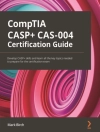Blockchain and the Internet of Things (Io T) are separately regarded as highly capable popular technologies. Blockchain is a database used for decentralized transaction purposes. It provides novel directions to store and manage data, whereas the Io T relates to the propagation of linked smart machines through the Internet. A technology significant to the manufacturing business, which is currently experiencing a digital revolution through new equipment and data, leading to the Industrial Internet of Things, or the IIo T. The IIo T has advanced swiftly, but privacy issues and safety vulnerabilities remain concerns. Incorporating blockchain technology with its decentralization and embedded cryptographic principles with the IIo T creates Blockchain for Industrial Internet of Things (BIIo T) which can overcome these security requirements and motivate the further development of Industry 4.0. This book gives a detailed survey of BIIo T and discusses all relevant aspects of this concept, including structural design and open research directions.
Key features
- The first book of its kind to addresses the emergent Blockchain in the Industrial Internet of things (BIIo T)
- Explores basic and high-level concepts of Blockchain techniques and advanced aspects in various domains.
- Includes an overview of the mining, consensus algorithms, smart property key themes required for implementation in various domains.
- This book provides fundamental data structures and algorithms used to build a typical Blockchain.
- Helps programmers begin their journey with the public and private Blockchain development
Cuprins
Preface 1 Internet of Things (Io T) 2 Industrial Internet of Things 3 Blockchain Technology 4 Blockchain Key Characteristics 5 Smart Contract 6 Taxonomy of Blockchain Systems 7 Combination of Blockchain and IIOT 8 BIIOT Architecture 9 BIIOT Deployment 10 BIIOT Applications
Despre autor
Lakshmana Kumar Ramasamy is currently associated with Hindusthan College of Engineering and Technology, India. He is also a Director-Research & Development (Artificial Intelligence) in a Canadian-based company (ASIQC) in Vancouver. He is the Founding Member of IEEE SIG of Big Data for Cyber Security and Privacy, IEEE. He is a global chapter Lead for MLCS [Machine Learning for Cyber Security]. He is involved in research and expertise in AI and Blockchain technologies and holds Data Science certification from John Hopkins University, United States. He also holds the Amazon Cloud Architect certification from Amazon Web Services. He holds the privileged Gold level partnership award from Infosys for bridging the gap between industry and academia in 2017. He holds the privileged Silver level partnership award from Infosys for bridging the gap between industry and academia in 2016. He is an Editor-In-Chief for Book Series, “Advances in Quantum Computing, Artificial Intelligence, and Data Sciences for Industrial Transformation Series’, and is also an Editor-In-Chief for Focus Series, Convergence of Io T and Blockchain Through Machine Learning Approaches, CRC Press. He is a core member of the Artificial Intelligence Editorial Advisory Board of Cambridge Scholars Publishing, UK. He is an Editorial board member of Trends in Renewable Energy Journal, USA and Frontiers in Communications and Networks, Switzerland. He is the Associate Editor for International Journal of Quality Control and Standards in Science and Engineering (IJQCSSE), IGI Publishers, USA. As part of his professional career, he has around 50+ publications in international journals and conferences. He has edited books published by Elsevier, CRC Press, Springer, and Wiley. He holds around 19 Indian patents and 2 International patents. He is an ACM Distinguished Speaker and IEEE brand ambassador.
Seifedine Kadry has a bachelor’s degree from Lebanese University, MS degree from Reims University (France) and EPFL (Lausanne), Ph D from Blaise Pascal University (France), HDR degree (Habilitation) from Rouen University. At present, his research focuses on data science, education using technology, system prognostics, stochastic systems, and applied mathematics. He is an ABET program evaluator for computing and ABET program evaluator for Engineering Tech. He is an IET Fellow. Currently, he is a full professor of Data Science at Noroff University College, Norway.












